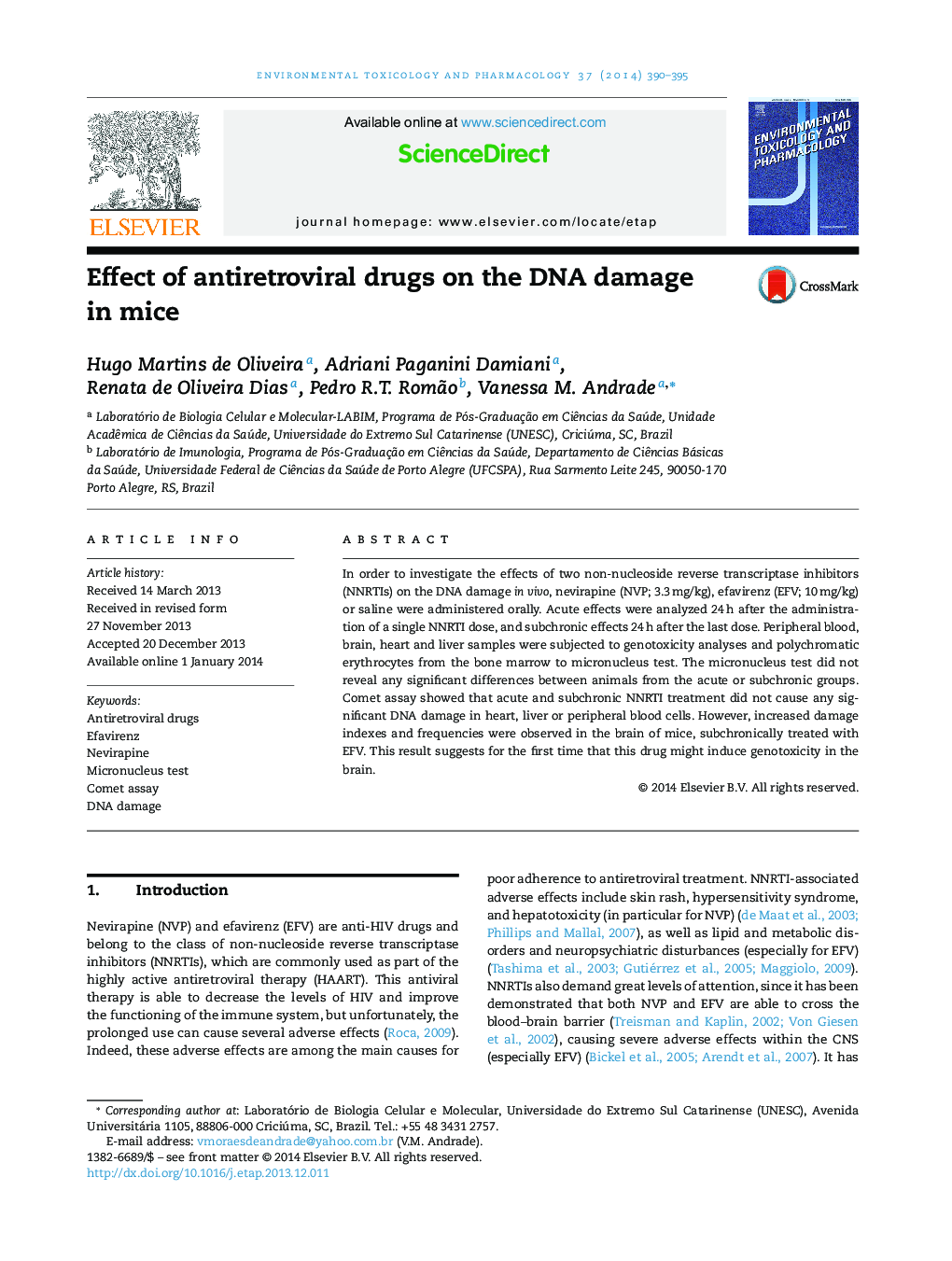| Article ID | Journal | Published Year | Pages | File Type |
|---|---|---|---|---|
| 2584010 | Environmental Toxicology and Pharmacology | 2014 | 6 Pages |
•Patients suffering from HIV/AIDS are commonly treated with nevirapine and efavirenz.•Acute and subchronic use of antiretroviral drugs causes various adverse effects.•We investigated acute and subchronic effects of efavirenz and nevirapine on DNA damage.•Acute or subchronic administration of nevirapine did not increase the DNA damage in mice.•Subchronic treatment with efavirenz increased the observed DNA damage in the brain of mice.
In order to investigate the effects of two non-nucleoside reverse transcriptase inhibitors (NNRTIs) on the DNA damage in vivo, nevirapine (NVP; 3.3 mg/kg), efavirenz (EFV; 10 mg/kg) or saline were administered orally. Acute effects were analyzed 24 h after the administration of a single NNRTI dose, and subchronic effects 24 h after the last dose. Peripheral blood, brain, heart and liver samples were subjected to genotoxicity analyses and polychromatic erythrocytes from the bone marrow to micronucleus test. The micronucleus test did not reveal any significant differences between animals from the acute or subchronic groups. Comet assay showed that acute and subchronic NNRTI treatment did not cause any significant DNA damage in heart, liver or peripheral blood cells. However, increased damage indexes and frequencies were observed in the brain of mice, subchronically treated with EFV. This result suggests for the first time that this drug might induce genotoxicity in the brain.
